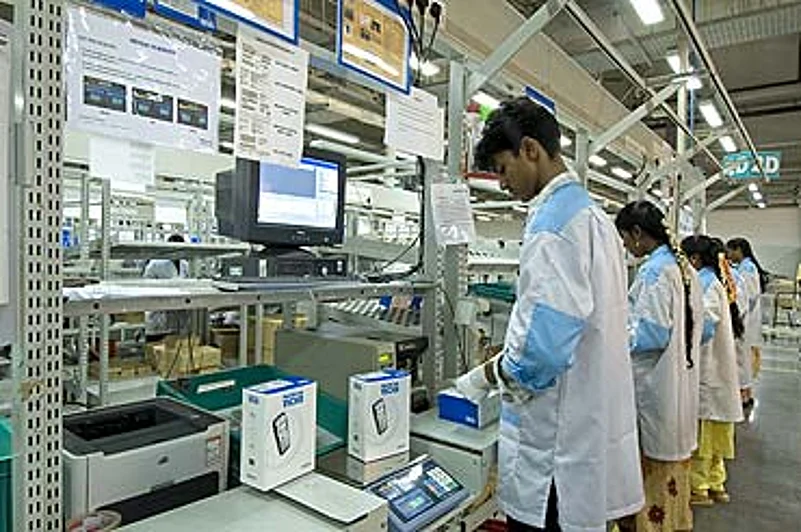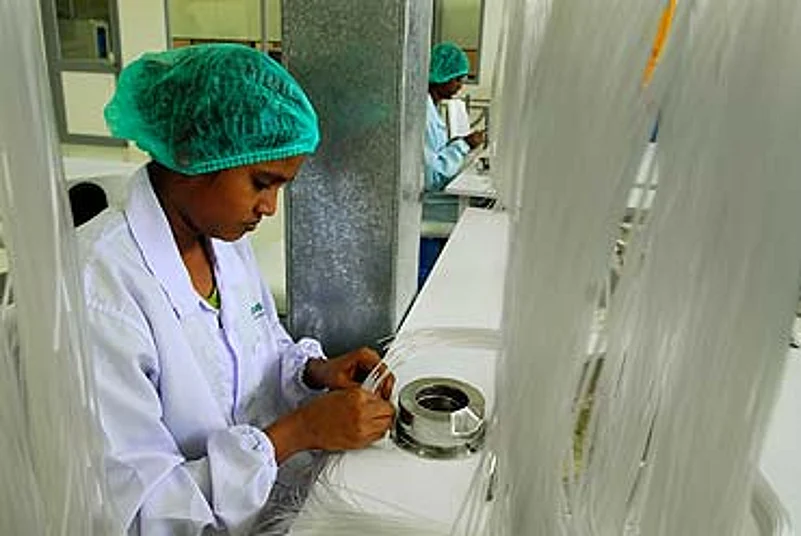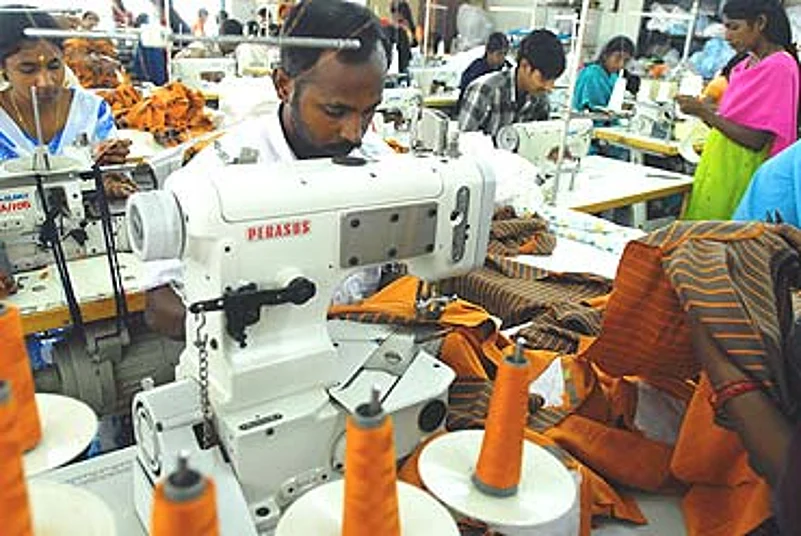
Gone are the days when the CMs of southern states went out of their way to woo investors. Today, the reasons for the inflows are not just about investor-friendly governments and tax sops. It is also because the business ecosystem is in place and, therefore, no one bats an eyelid before deciding on Tamil Nadu or Karnataka. It's akin to what's happening in Bangalore and Hyderabad; no global manager is fired for choosing either of the two cities as the IT outsourcing base. Says H.S. Lheem, MD, Hyundai Motor India, which has a plant in Tamil Nadu, "The state's prime attraction lies in its investor-friendly policies. It also has a good industrial policy, amicable labour relations and ample support from the state government." Adds Cho Ramaswamy, political commentator, "As for the opinion that politicians in the south deliver the goods despite being corrupt, well, I would say to their credit that they have not prevented development. And that is saying a lot."
But the role of the state governments is certainly important. Says Sachin Saxena, director (operations), Nokia India, which has already produced 25 million mobile handsets at its Sriperumbudur unit, "Dayanidhi Maran, the then telecom minister, was instrumental in swinging the deal in Chennai's favour. The state provided us with a single-window clearance; it was so quick and efficient that it enabled us to commence production within six months of land possession".
In a written reply to Outlook, Tamil Nadu CM M. Karunanidhi said: "The speed with which investors are going ahead with implementation of their projects is proof of the quality of our facilitation. The state has always honoured commitments made to investors, and deals with them in a transparent manner, leading to high levels of confidence. Consistent performance in arranging necessary clearances has played a critical role in maintaining this level of investor confidence."
Comparing Pune to Chennai, the old and the new 'Detroits of India', Sampat Kale, an analyst with the Pune-based National Centre for Advocacy Studies, recalled how Maharashtra "literally gifted public land to auto companies to set up new units or expand their operations." Today, this is happening in Tamil Nadu. Says Himanshu Kulkarni, associate faculty, Pune-based Symbiosis Institute of Business Management: "Companies like Hyundai and Daewoo went to Tamil Nadu because of the incentives given by the state government through tax rebates and land prices."
Obviously, physical infrastructure can sway the investment decision in the favour of some states. Here too, the south is way ahead of the north or west. Yet again, a comparison between Pune and Chennai seems a valid one. While talking of the success of Pune in the 1990s, a 2003 UNIDO report stated that "the proximity of Pune to Mumbai and the availability of infrastructure facilities, existence of transport and communication services and also the presence of skilled and unskilled manpower attracted a large number of industries to this region."
Now, the same is happening with Chennai. The state government is seriously tackling all infrastructure-related issues. The proposed special economic zones and manufacturing townships are largely aimed at removing all forms of bottlenecks. Of course, Chennai offers the additional advantage of being a port city, housing an international airport, and offering a quality of life at much lower costs. Even in the case of Kochi, the building of India's first private-public airport, which is considered world-class, changed the state's anti-business image. On Tamil Nadu, CM Karunanidhi says, "Industrial infrastructure has received adequate attention. For example, technologies like recycling of sewage for supply of water to industries through private investment is being harnessed. Tamil Nadu is surplus in power. Logistical advantages due to the presence of three major seaports, an international airport, and several domestic airports are key to export-oriented industries."

Mahindra World City, Chennai: BMW recced 30 sites before coming to MWC
Similarly, in terms of soft skills, or availability of talented manpower, the south is ahead. "Chennai has become attractive because it is near ports and has reasonable road and airport connections. The presence of multiple manufacturers has created a regional network of auto component suppliers. Also, Chennai's pool of workers with a strong auto background is a considerable advantage. All our workers have completed at least 10 years of formal education," says Hulsenburg.
The work culture is also better. Sanjay Kumar Gupta, who set up Kishore Apparels in Tiruppur, Tamil Nadu, says: "Ludhiana was also offering me incentives, but people were very transparent in Tiruppur. We felt attuned to the work culture in Tiruppur. The cooperation of workers here is much higher. He will work for money, but will also go hand-in-hand with the management. I can call any worker at 5 in the morning to meet a tight delivery deadline, and he will come." Given such workers' cooperation, the managements too reward their employees handsomely. Says R. Gopalakrishnan, chairman of Tiruppur-based Royal Classic Mills, a major player in exports and domestic markets, "There is this woman in my company who started out as a helper a decade ago and was earning Rs 2,800 per month. Over the years, she was promoted and today she is the HR head earning Rs 60,000."
However, the most important change in the southern states has been in terms of risk-taking abilities. The entrepreneurial streak has caught on in the south. Consider how Tiruppur transformed itself into a global player in knitwear, and how its exports zoomed from Rs 15 crore in 1985-86 to Rs 11,000 crore in 2006-07. S.S. Moorthi, senior tech advisor, Apex Cluster Development Services, a consultancy firm, admits, "The risk-taking ability is seen here—firms don't mind investing in new technology machines and processes even it if costs Rs 2-3 crore."

A knitwear unit, Tiruppur: Tiruppur’s exports in ’06-’07: Rs 11, 5000 cr
The opposite is happening in Punjab's Ludhiana, once known as India's Manchester because of its booming textiles sector. Most of the Punjabi entrepreneurs are migrating abroad, many are setting up units in China. A case in point is the younger brother of Avtar Singh, general secretary, Chamber of Industry and Commerce, Ludhiana, who left for Australia a couple of years ago. "I don't want to slog it out this way for the rest of my life," he told his brother before he migrated.
At the same time, textile units in Ludhiana failed to modernise. Despite the decline of the Russian market, which comprised a third of Ludhiana's exports in volume terms, the promoters failed to show enterprise and search for newer markets. But Tiruppur managed to find new customers in Europe and the US. "We supply yarn to many parts of the country, including Ludhiana, but our supplies to Tiruppur are growing by a much higher 12 per cent annually," says B.K. Goyal, CEO, Vardhman Spinning.
In the bicycle segment too, Ludhiana failed to make strategic changes to become globally competitive. So, it is losing out to China. Avtar Singh estimates that this industry has declined by 40 per cent in the past four years. Satish Dhanda, president, Indian Bicycle Manufacturer Association, says that while he has begun sourcing some parts from China, he plans to import frames the next year. "I can buy a ready-to-paint bicycle frame from China at Rs 41,000 per tonne, while the cost is Rs 63,000 in India."
However, when it comes to the south vs north debate, what one often forgets is that the southern states are becoming huge consumption centres. In some product categories, they constitute among the fastest-growing markets. "We cannot ignore the burgeoning southern market, which will account for a third of our sales this year," says R. Zutshi, deputy MD, Samsung India Electronics. Venugopal Dhoot, chairman, Videocon group, seconds it. "We would like to open our next manufacturing facility in Chennai to cater to this rapidly increasing local demand in Karnataka and Andhra Pradesh," he feels. Electronic giant SanMina's MD Kumar Subramaniam echoes the same sentiments. "Chennai is the place where many of SanMina's top customers have established a presence." Adds Anup Kumar Dave, CEO, MeTecno India, the Indian subsidiary of an Italian sandwich panel maker, "All states offered the same kind of deals. But what mattered most to us was that our major customers are in and around Chennai."
Even when it comes expensive high-end products, the south seems to be more attractive. Not surprisingly, Zutshi hopes to manufacture advance LCD TVs and LCD monitors from his Chennai unit, and Videocon has evinced an interest in setting up a manufacturing unit to make plasma TV in Sriperumbudur. "We are currently negotiating with the Tamil Nadu government to grant us sales tax exemptions and give us quality land before we take a final decision," says Dhoot.
So, if you are sitting in your corner room thinking of setting up a manufacturing unit in India, fly out to any of the southern states, even Kerala. As Chittilapilly Kochouseph, Kerala's most talked-about entrepreneur, concludes, "Kerala has matured. We are no more afraid of labour militancy. It's a moment of realisation for all of us."


























